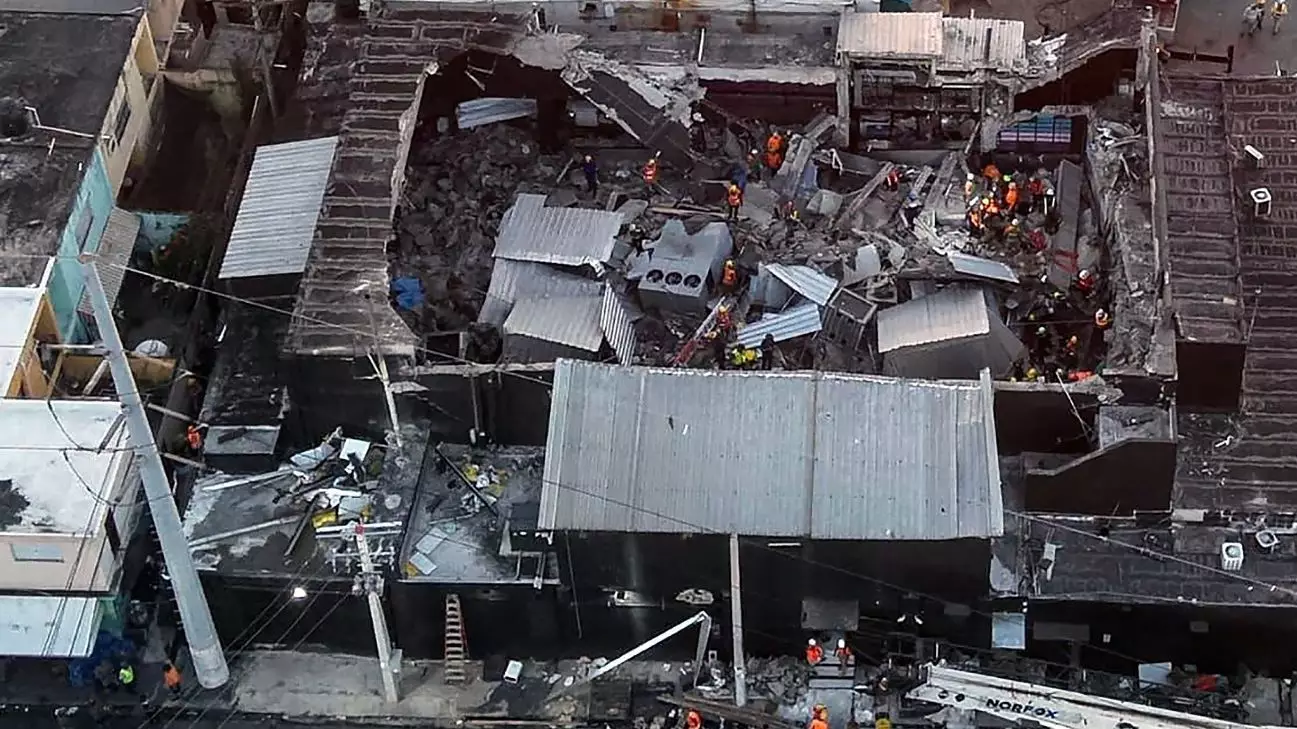The recent catastrophe at the Jet Set nightclub in Santo Domingo has left an indelible mark on the heart of the Dominican Republic. A celebration turned to devastation when the roof collapsed, claiming the lives of over 70 individuals, including former Major League Baseball players Octavio Dotel and Tony Blanco, as well as Nelsy Cruz, sister of the celebrated seven-time MLB All-Star Nelson Cruz. As we sift through the horror of this event, we are confronted not only with the physical wreckage but also with the emotional scars that this tragedy will leave behind. The sight of rescue crews diligently working through piles of debris is a potent reminder that life is fragile, and the repercussions of such a disaster extend far beyond mere numbers.
The Human Toll
What strikes the deepest chord in this tragedy is not simply the statistics—the loss of lives, the count of the injured—but the personal stories that each number represents. These were not just victims; they were fathers, mothers, athletes, and community pillars. The world of sports has always celebrated its heroes, but it is in moments like these that we are reminded of their vulnerability. Dotel’s and Blanco’s careers were spent achieving greatness on the field, yet their lives were brutally cut short in a moment of chaos, highlighting the inexplicable randomness of fate and the importance of community in times of despair.
Moreover, the death of Nelsy Cruz introduces a personal layer of grief that resonates with many. The anguish of losing a sibling, particularly under such tragic circumstances, is unfathomable. It brings to light the interconnectedness of families and communities, reminding us that when one person suffers, the ramifications can be felt throughout an entire network of relationships. President Luis Abinader expressed this sentiment poignantly when he described the situation as “too great a tragedy,” highlighting the collective mourning that envelops the nation.
Causes and Consequences
Yet, as grief envelops the hearts of affected families and friends, our attention must also turn to the larger implications of what went wrong. While the immediate focus lies on the human loss, questions about safety regulations and accountability spring forth. Why did the roof collapse during a moment of festive joy? What measures were in place to prevent such an occurrence? In this modern era, the responsibility for public safety and the enforcement of building codes should never be an afterthought.
The tragic collapse compels us to reflect on structural integrity and the responsibilities of local governments to ensure that venues frequented by citizens are safe spaces. There needs to be a reckoning about the standards that are upheld, especially in places that draw large crowds. To hold the responsible parties accountable is not merely a matter of justice; it is an essential step toward reassuring the public that their well-being is paramount.
Unity Amidst Grief
As the dust settles, the response of the community paints a picture of resilience and solidarity. MLB Commissioner Rob Manfred’s poignant statement of sorrow and support illustrates a broader commitment from the sports community to stand in solidarity with those mourning. The MLB Players Association echoed this, emphasizing unity in the face of unfathomable loss. Such expressions of solidarity signal that, as a society, we can strive to heal together, grappling with grief while holding each other up.
It is also a moment for introspection about the culture surrounding nightlife and celebration. The nightclub—often a space for joy and excitement—has transformed into a scene of devastation. This duality challenges us to not only celebrate life but also to deeply invest in the systems that safeguard those moments. We should advocate for safer environments, ensuring that happiness does not come at the expense of security.
The Jet Set tragedy serves as a stark reminder of life’s fragility. While the night began with anticipation of music and dance, it ended in heartbreak and loss. As we reflect on the impact of this disaster, we must embrace the dual responsibilities of grieving and taking action, searching for accountability in the safety processes and practices that govern our shared spaces. The legacy of those lost should inspire a movement towards meaningful change so that their memories live on in a reformed society dedicated to accountability and care.


Leave a Reply